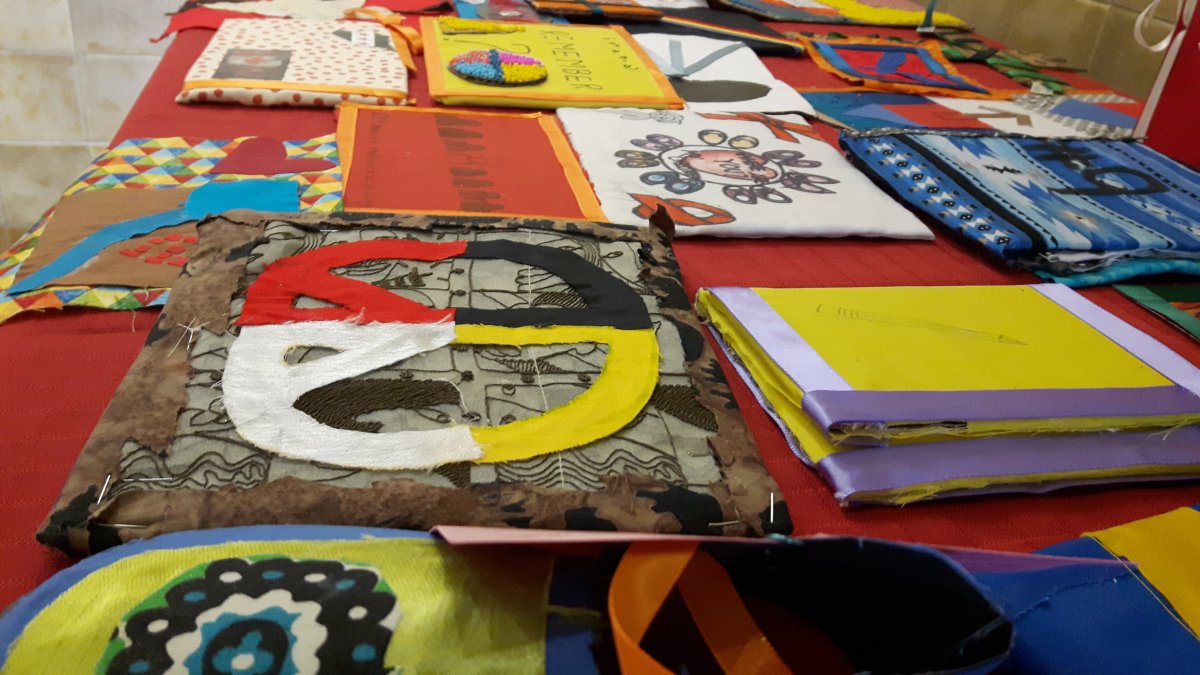For the past year students and teachers at Balfour Collegiate have been working on art pieces to represent the Truth and Reconciliation Commission of Canada’s 94 calls to action.

READ MORE: Saskatoon residents react to TRC recommendations
It’s part of the Ribbon Project, a school wide initiative to recognize Canada’s colonial past.
Over 400 students and teachers worked with educator and designer, Tracey George Heese from Ochapowace First Nation.
Heese shared stories of her grandmother and mother’s experiences in residential schools. The artist had her own painful memories, as she was taken away from her family as part of the 60’s scoop.
READ MORE: Balfour Collegiate asking for new team name submissions
Students also spent time with life speaker Noel Starblanket in the school’s tipi to discuss reconciliation and to smudge their art materials.
Students returned to the classroom to complete their creative piece.
“They were able to create something that they were thinking about, and a lot of them you can look at and know what call to action they were working on, and some of them you might not, but that student knows,” teacher Rhonda Stevenson said.
It’s hoped the art, which is displayed throughout the school, will have a lasting impact on students.
“For some, it’s brand new information and for some we’re living this, and I think there is all kinds of conversations going on.” Stevenson said.
Leanndra Davidson and her sisters were the first members of her family to be spared from going to residential schools. That’s why the Grade 12 student found it so important to participate in the project.
“I did it to represent me, I have a lot of family that [have gone] to residential schools and I’ve been bullied for being Metis,” Davidson said.
Davidson’s big picture goal is to keep the conversation alive. On a personal note, this is all about honouring her mother, a residential school survivor.
“When these things come up she does get upset. I tell her that, you know, it’s okay. It’s in the past, and we’re here now and we talk about it so we don’t forget what happened back then,” Davidson said.




Comments